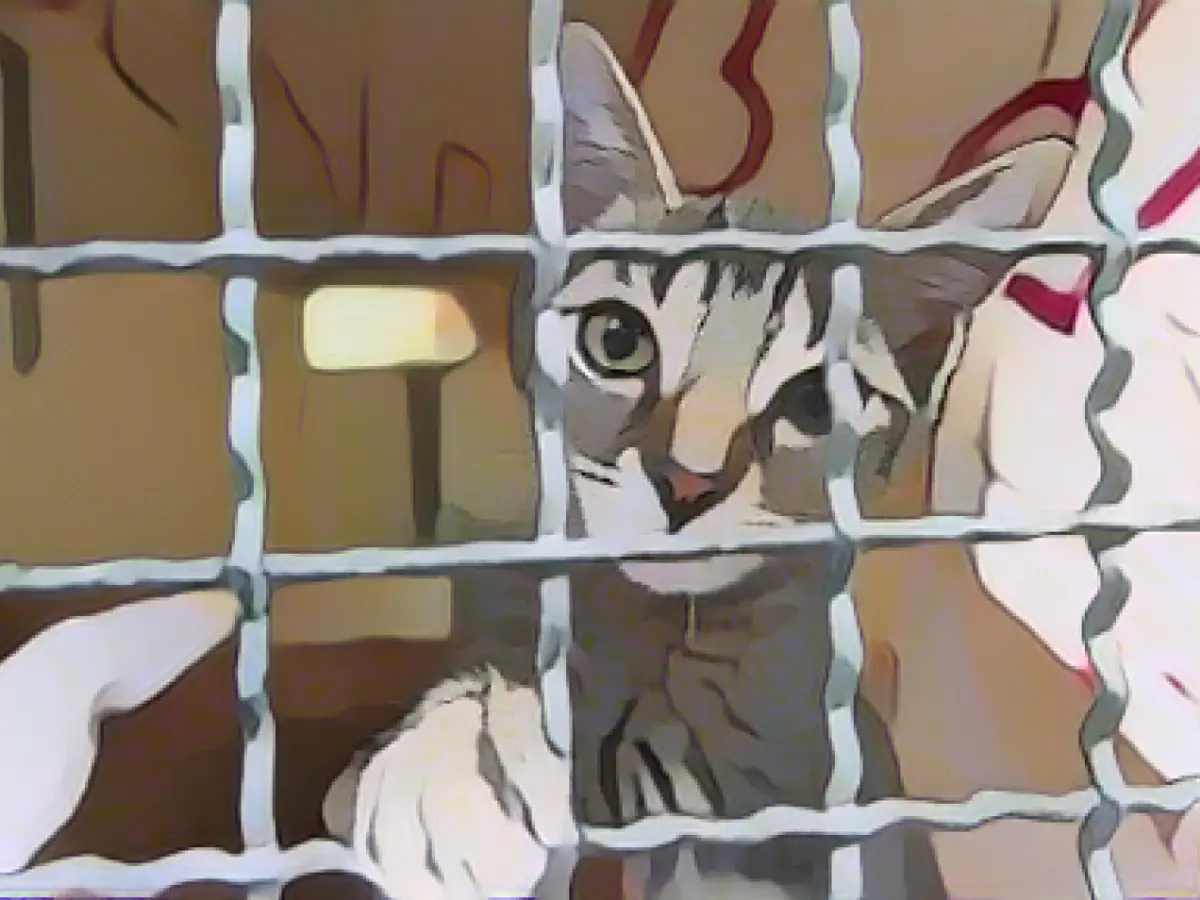Animals - Animal shelters in despair: Overcrowded and in deficit into the new year
There is good news, but it's not really good news at all: After Christmas, many animals that have been given away are no longer abandoned as they used to be. As Thomas Schröder from the German Animal Welfare Association says, there is no longer a wave of surrenders like there was just before the long summer vacations. But animal shelters in Germany are still full. Permanently full. And those responsible are frustrated.
"The situation in animal shelters has deteriorated further," says Schröder to the German Press Agency. "At least three quarters of animal shelters can no longer take in any animals. We have more and more animals there that stay longer and require more care." There are many reasons for this.
For example, dog schools were closed during the height of the pandemic. "So nobody could get help when they took in a new dog," explains Schröder. "So we have a relatively large number of good, but poorly trained dogs in animal shelters.
Pandemic run on pets has clogged up the market
Dogs that are taken away from their owners by veterinary authorities are also often permanent residents. "First of all, the animal can't be rehomed because the owner usually takes legal action against it," says the association president. "And even if the release has been clarified: we have long-tailed dogs in the animal shelters that are peaceful and wonderful, but belong to a breed that is not allowed to be kept in the federal state where they were picked up."
Animal shelters in different regions used to swap animals - but now they are all full. What's more: "There is a lack of qualifications in the animal shelters. Dealing with difficult dogs, for example, is not included in the usual animal care training," says the president of the association with 550 animal shelters and rescue centers.
But according to Schröder, there is currently no market even for dogs, cats or rabbits that would be easy to place. "Anyone who wanted a pet got it during the pandemic - and anyone who didn't want it gave it up and didn't get a new one."
Higher veterinary costs for a year now
The facilities are facing these problems with a budget that is permanently too small. According to Schröder, most shelters do not receive cost-covering funding from the veterinary offices or local authorities. In addition, funding is different in every municipality - in some cases, a home manager has to negotiate individually with every mayor in the district. "We are subject to an insane amount of bureaucracy."
Funding has been exacerbated by the new regulation on fees for veterinary treatments, which came into force in November 2022. As a further consequence, facilities report that older or sick animals with high veterinary costs are now more likely to be handed in.
Schröder therefore has one wish: more help from local authorities, federal states and the federal government, although the latter has not been directly involved in the funding to date. "We are being choked from many sides at the moment. The animal shelters are at the limit of their resources. We need support."
Read also:
- Snow chaos further restricts Bavaria
- "Zoltan" sweeps across the country - disruptions to rail traffic
- "Zoltan" brings masses of water, rail chaos and suspected tornadoes
- Heavy rain and snow expected after storm depression
- Despite the decrease in animal surrenders after Christmas, animal shelters in Germany, like the one led by Thomas Schröder at Bonn, are still struggling with overcrowding and financial deficits.
- The closures of dog schools during the pandemic have led to a high number of poorly trained dogs being left at animal shelters, making it difficult to find them new homes.
- German animal shelters are facing challenges like a shortage of funds, as most shelters do not receive adequate funding from veterinary offices or local authorities and have to navigate different funding policies in each municipality.
- Schröder, the president of the German Animal Welfare Association, has expressed a need for more support from local authorities, federal states, and even the federal government to help the struggling animal shelters in Germany.
Source: www.stern.de






